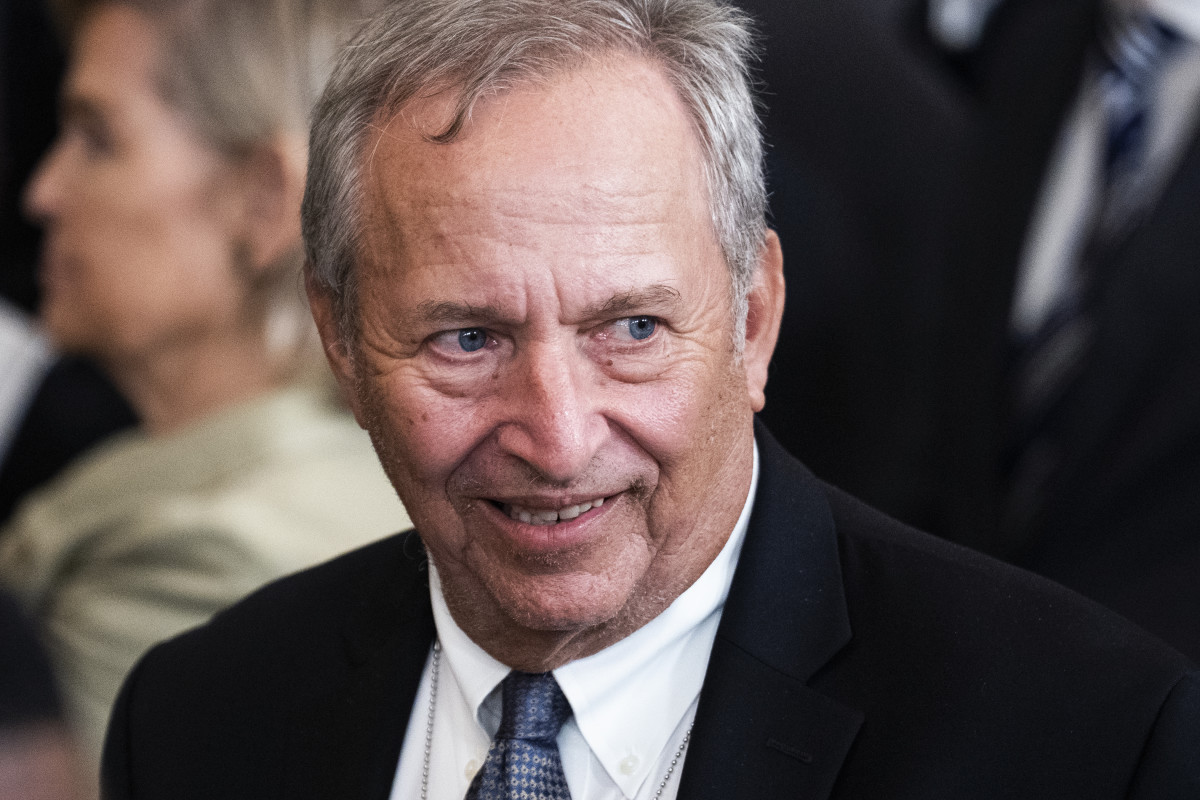
Fast Facts
- OpenAI board member Larry Summers said at the Fortune Innovation Forum Thursday the adoption of AI will take longer than expected.
- Still, he believes the technology has enormous economic implications.
- He said that eventually, AI will replace all human labor.
Artificial intelligence is a technology with no shortage of concerns, and likewise, no shortage of investor enthusiasm. Even as a growing incorporation of the technology has fueled enormous valuations on Wall Street, setting off a debate among investors about viable pathways toward monetization, a different debate has been growing on Main Street that has nothing to do with return on investment.
Researchers, policymakers and civilians remain increasingly concerned about AI and the many harms that it is already responsible for, including mass disinformation, highly-scaled fraud across a number of mediums, algorithmic discrimination, deepfake harassment, data theft, copyright infringement and privacy violations.
But a worry for many is centered instead around economic disruption and enormous levels of job loss, a fear that has not been assuaged by the people responsible for creating the tech.
“This offers the prospect of not replacing some forms of human labor, but almost all forms of human labor.”
Speaking at Fortune's Innovation Forum in Hong Kong Thursday, former U.S. Treasury Secretary Larry Summers said that the full potential of AI won't be here for a couple of years. Summers joined the board last year after CEO Sam Altman's sudden firing and re-hiring.
Summers likened AI to self-driving cars, a sector that has been in development for years, saying that despite all the efforts to build autonomous vehicles, truck drivers have yet to lose their jobs.
Still, he thinks that the full potential of AI will inevitably come, eventually.
“If one takes a view over the next generation, this could be the biggest thing that has happened in economic history since the Industrial Revolution,” he said. “This offers the prospect of not replacing some forms of human labor, but almost all forms of human labor.”
Summers said that AI will eventually be able to do just about every type of human job, specifically impacting "cognitive labor," something that he said will make emotional intelligence important in this new age of pending joblessness.
“AI will substitute for a doctor making a difficult diagnosis … before it substitutes for a nurse’s ability to hold a patient’s hand when the patient is frightened,” he said.
Related: There's AI-generated porn for sale on Etsy
AI and the economy
Summers' expectation that AI will be the great labor replacer is one that has been shared by quite a few people and organizations.
Altman told The Atlantic last year that "jobs are definitely going to go away, full stop."
His solution to that is Worldcoin, a startup that scans peoples' irises to both verify authentic humanity and provide a pathway to a universal basic income (UBI), the details of which remain murky.
Goldman Sachs said in a report last year that AI has the potential to replace 300 million jobs, adding that around two-thirds of jobs in the U.S. are exposed to "some degree" of automation by AI.
“Although the impact of AI on the labor market is likely to be significant, most jobs and industries are only partially exposed to automation and are thus more likely to be complemented rather than substituted by AI,” the report reads.
The International Monetary Fund (IMF) said in January that around 40% of jobs around the world are "exposed" to AI; that number is even higher for advanced economies.
Dr. Srinivas Mukkamala, an AI authority who now serves as Ivanti's CPO, told TheStreet last year that, without regulation, AI will likely lead to enormous levels of global economic inequity.
"The only thing I'm concerned with is the haves and the have-nots. This is going to create inequality that we've never seen in our lifetimes," Mukkamala said. "We're going to pretty much have 99% of the world's population left behind. There is just no doubt about it. We're going to create a true economic crater."
Related: US Expert Warns of One Overlooked AI Risk
A look at Larry
A recognized economist, Summers won the prestigious John Bates Clark Medal and was appointed by Former President Barack Obama as the director of the National Economic Council.
Still, Summers has been the center of a number of controversies.
While serving as the World Bank's chief economist in 1992, Summers wrote a memo that argued for more pollution in developing countries, saying: "I think the economic logic behind dumping a load of toxic waste in the lowest-wage country is impeccable and we should face up to that."
In the 1990s, he also led a push to deregulate the derivatives market, a move that would later become a key component of the 2008 financial crisis.
According to the Wall Street Journal, Summers had connections with sex offender Jeffrey Epstein. He appeared on the flight logs of Epstein's private plane.
Contact Ian with tips and AI stories via email, ian.krietzberg@thearenagroup.net, or Signal 732-804-1223.







